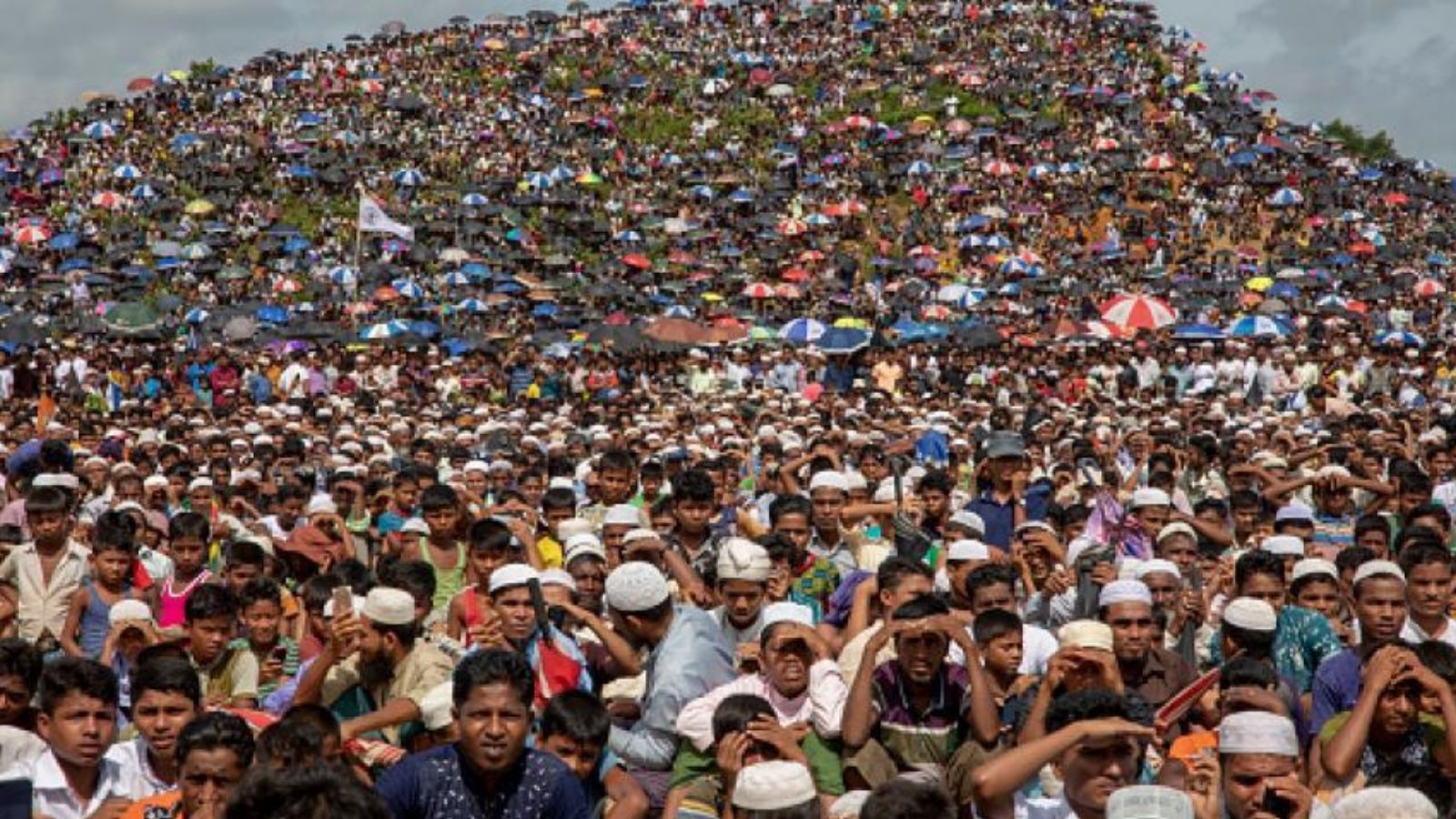State Counsellor Aung Suu Kyi’s recent defense of Myanmar military at the International Court of Justice against the allegations of genocide has turned the spotlight on Myanmar- and for all bad reasons.
By Paras Ratna, Research Associate w/Strategic & Foreign Relations Practice at Rashtram
This article was published in the Deep In The Sea
Image Source: Deep In The Sea
State Counsellor Aung Suu Kyi’s recent defense of Myanmar military at the International Court of Justice against the allegations of genocide has turned the spotlight on Myanmar- and for all bad reasons. Myanmar’s Rakhine province is experiencing a humanitarian crisis that has led to the exodus of Rohingya Muslims to Bangladesh and even Malaysia. The unfolding of this humanitarian crisis has security ramifications for the immediate and contiguous neighborhoods of India and Bangladesh.
It is important to note that these fault lines are a legacy from the past. It is attributed to the British colonial practices of bringing cheap laborers from the then East Bengal in British India and promoting them at the expense of Buddhists. Therefore, they were viewed as pro-British by the Buddhists who resented the Raj and were allied to the Japanese forces. Colonial policies in the past pitched ethnic groups in Myanmar against one another. The current competitive electoral democracy has a polarized/weaponized identity in Myanmar. This insider-outsider narrative as a consequence of the identity politics gained prominence, in turn, triggering sectarian conflict. Access to the internet and social media have added fuel to the fire.
In addition to history, the dominant narrative in its analysis misses the nuances of Myanmar’s domestic politics and the subsequent civil-military tension. Myanmar is a quasi-democracy and 25 per cent of seats in the parliament are reserved for the Military. Appointments to important portfolios such as the interior (home) ministry, border affairs ministry, and defense are nominated by the Junta. This shows that Aung Suu Kyi could do little with respect to these domains.
Notwithstanding these challenges, State Counsellor Aung San Suu Kyi constituted Rakhine commission in 2016 under the chairmanship of Kofi Annan, ex-UN secretary-general. A bold step from the viewpoint of engaging with the international community- a fact that remains underappreciated. Important to note here is that the 88 recommendations by the commission were fully endorsed by the State Counsellor Aung Suu Kyi. However, immediately after the proposals were submitted, the Arakan army launched an attack on Myanmar military forces. This led to what many argue as a disproportionate and harsh response by the military. The Arakan Army is also involved in targeting Indian investments in the Kaladan Multi-Modal project, critical to North East and Myanmar connectivity. Therefore, the motives of the Arakan Army, too, needs to be examined objectively.
The civilian government in Myanmar is increasingly trying to make military relent control over the administrative and political apparatus- in tandem with the democratic setup. Myanmar parliamentary committee has recently finalized the amendment to the constitution, aimed to delegate more powers to the civilian government. Focus on the sectarian conflict has managed to shift the global spotlight from democratic transition to ethnic conflict. By not acknowledging the constraints, the western narrative has in a way attempted to discredit the civilian government. Loss of credibility on the part of State Counsellor Aung Suu Kyi would automatically reduce the pressure on the military to cede power to the civilian government.
Aung Suu Kyi’s defense of the Myanmar military against genocide allegation at The Hague, therefore, needs to be viewed in the above light. Although the merits of the allegation remain to be seen/decided, the defense was well received domestically. It has bolstered her credibility in the eyes of the electorate. To make fundamental changes to the constitution to make it democratic, Aung Suu Kyi needs both domestic and international support. The historical, domestic, ethnic and regional complexities of the sectarian conflict in Rakhine province should dissuade simplistic analysis. Therefore, It is imperative for the western media/human right bodies/international judiciary to understand the constraints confronting State Counsellor Aung Suu Kyi- and the options she has.

